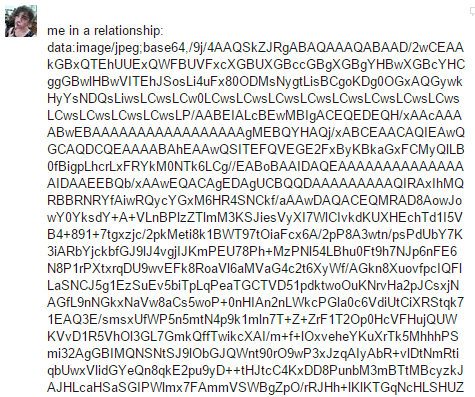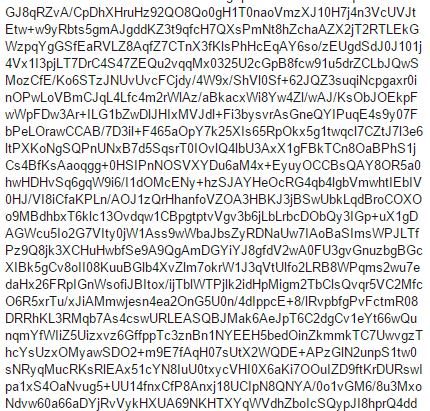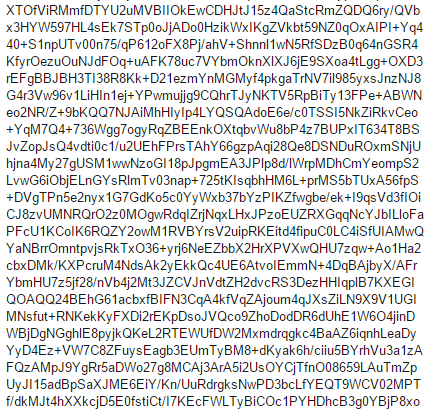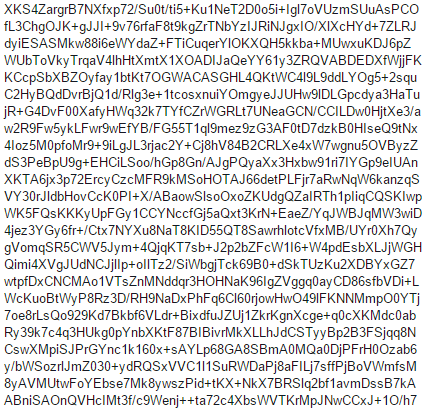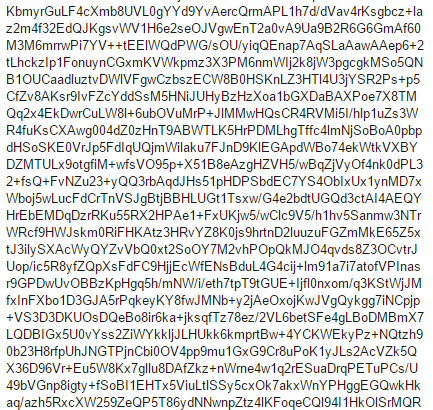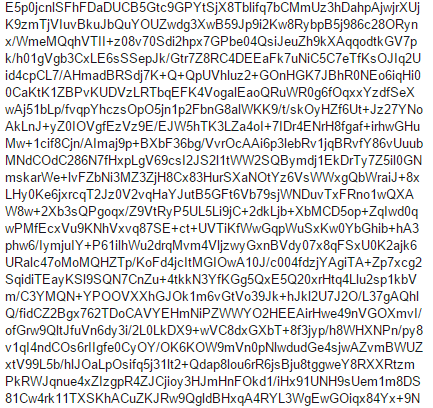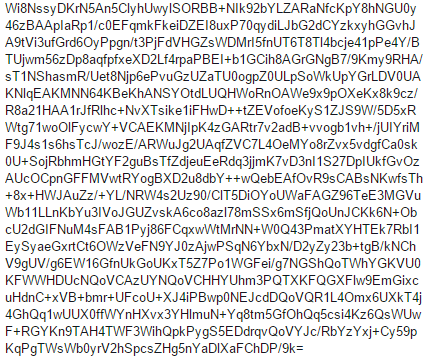Daylight Savings Is Actually Truly One Of The Most Evil Things In The World. Just Casually Forcing Us
daylight savings is actually truly one of the most evil things in the world. just casually forcing us to confront the fact that time is fake while torturing insomniacs, autistics and schoolchildren across the globe. when will the agony end
More Posts from Le-blanc-et-la-noire and Others
Turnchetta playlist for @lesmisshippingshowdown
This is for @lesmisshippingshowdown which allows fanworks to give extra points in the polls. We are trying to get the very canonical and important pairing of Turning Woman #3 (a chorus member from the 2012 movie) and Musichetta (Joly's never-onscreen girlfriend from the book) onto the next round.
Even if you don't have a clue what Les Miserables is, can you vote Turnchetta here? As a favor? And if you're not sure, maybe this playlist will convince you of their deep canonicity and long-term importance to the fandom. Or just do it for chaos. Either one as long as you do it.
Spotify playlist:
Tracklist
Three Coins in the Fountain - Connie Francis
Musichetta stupidotta, scanzonata, innocente - Commenti Sonori
My Baby Loves A Bunch of Authors - Moxy Fruvous
What's Love Got To Do With It - Tina Turner
You Turn The Screws - Cake
Turn, Turn, Turn - Dolly Parton
Who Will Shoe Your Pretty Little Feet - Tennesse Ernie Ford
The World Spins Madly On - The Weepies
Sunday Bloody Sunday - U2
飛哥跌落坑渠 (Teddy Boy in the Gutter) - 李寶瑩, 鄧寄塵, 鄭君綿 歡場三怪
Turn Around - They Might Be Giants
Tangled Up In Blue
Heartaches by the Number - Cyndi Lauper
Three Times a Lady - Sissel
Let's Face The Music And Dance - Diana Krall
Turn The World Around - Womansong
Liner notes and Youtube links under the cut. (Fanmix liner notes means "write a synopsis of an entire hypothetical musical" right? That's how I've always done it.)
These are largely old standards, which meant I had a range of cover options, and I went with women's covers most of the time. However some of them I couldn't find an exact match on Youtube and Spotify so a few tracks will be different between the two.
Three Coins in the Fountain - Connie Francis
This was the first song I thought of for a Musichetta and Three mix! You can read this either as the three being Musichetta, Joly and Bossuet, and only one of them gets a happy ever after - or you can read it as Musichetta, Three, and one of their other working woman friends, and only one of them ends up marrying rich.
2. Musichetta stupidotta, scanzonata, innocente - Commenti Sonori
We needed an actual musichetta on this mix. The title translates as "Muschetta stupid, carefree, and innocent" - this is her in her early days, working, spending time with the girlfriends of her youth like Three, dreaming of a superb future.
3. My Baby Loves A Bunch of Authors - Moxy Fruvous
Here she is getting as she gets more involved with the students, gets drawn into the artistic world, goes to fancy parties, becomes someone's mistress.
4. What's Love Got To Do With It - Tina Turner
That world of surface romance and semi-transactional sex starts to harden her, even as she has one (two?) boys who delight in her and she in them.
5. You Turn The Screws - Cake
In the full musical version this would be a duet between Three and Musichetta where they are growing apart as she draws further into the political, literary, and bourgeois world of her students and Three commits to staying as she is and they both become scornful of each other's priorities. They see each other in passing around the Corinthe and don't speak. (This is probably happening around the time of the July revolution.)
6. Turn, Turn, Turn - Dolly Parton
And time passes and everyone gets older, and maybe it can go on like this forever but time passes and it won't, but it's always been that way. (This song is a quote from the book of Ecclesiastes which is very good poetry to read when you're disillusioned with the world and not sure what the point of keeping going is when it's just more of the same.)
7. Who Will Shoe Your Pretty Little Feet - Tennessee Ernie Ford
There start to be ominous undertones in Musichetta's world. It feels like July 1830 only somehow not the same. Her sweet boys fuss over her but at the same time start making noises about what she'll do when they're gone (but with very little understanding of what she *will* do if they're gone. She doesn't disillusion them of course.
8. The World Spins Madly On - The Weepies
This song plays while both Musichetta and Three are hold up in their separate apartments across town from each other, hearing the gunshots go off and staying in bed, Musichetta thinking about how she's abandoned her boys to fight without her and Three thinking about how she's let Musichetta get involved in all that without her
9. Sunday Bloody Sunday - U2
They wake up and go down to the Rue Chanvrerie and get blood all over their pretty little feet and their eyes meet while they sing.
10. 飛哥跌落坑渠 (Teddy Boy in the Gutter) - 李寶瑩, 鄧寄塵, 鄭君綿 歡場三怪
This is a reprise of the first song, courtesy of 1960s Catonese cinema which rewrote the lyrics as being about a girl of the town finding her boy stinking and disgusting in the gutter. I think it's supposed to be a scathing parody and he's just drunk and wearing too much perfume, but to the extent of my ability to translate the Cantonese, I think it also works here, as Three and Musichetta find the remains of her boys and Three is scornful of her squeamishness while hiding her compassion for her grief
11. Turn Around - They Might Be Giants
Trauma. They don't deal well with the survivor's guilt.
12. Tangled Up In Blue - Indigo Girls
This is the key to the whole love story, I knew this song in the Indigo Girls cover first, so it's always been a song about start-cross lesbians; they knew each other once, and they weren't even that different in class, but one of them ended up drifting and taking whatever manual work she could to get by, and one committed to spending time with college boys and reading medieval Italian poetry, and they keep coming together and separating again because they can't stay apart but they can't compromise with each other either. This is Three's song for Musichetta (how the specific incidents in the song line up with the plot is up to the person who ends up writing the book.)
13. Heartaches by the Number - Cyndi Lauper
This is Musichetta's song for Three - from her POV Three keeps leaving and breaking her heart while stays still, even though at the time Three left she thought it didn't matter and she didn't care, looking back from this end she can't stand it, and she's determined the next time she sees Three she makes it clear how much it hurt her.
14. Three Times a Lady - Sissel
And here she finally meets up with Three again but instead of pouring out her hurt she ends up pouring out her love instead!
15. Let's Face The Music And Dance - Diana Krall
Well, says Three, the world is awful and nothing we do matters, so we might as well keep trying to make it better (this is Three admitting that she loves Musichetta too, and her boys and their lost causes weren't all wrong.)
16. Turn The World Around
(Couldn't find the version on spotify on Youtube, so this is a random women's community chorus.)
With Musichetta's and Three's views reconciled, they realize that the key is to forget everyone's old grievances and come together in solidarity to make the world better for everyone with everyone's skills and resources together, and it does matter, and they lead the Turning women (who have also all paired off now) in this song instead.
Curtain call!
hey look over there what's that *throws these at you*
disco elysium ultra compressed for free
sacred and terrible air english translation // group ibex version
disco elysium art book
full soundtrack by sea power // bandcamp version
disco elysium script explorer with audio
FAYDE (more accessible wiki of dialogue trees but without audio)
This is the Eposette Sonatina (as opposed to a Sonata, because I think I played a bit too fast and loose with the form to call it that) I've been working on as a steal for @lesmisshippingshowdown ! It was a bit of a rush job since I only started it last week, but if you listen I hope you enjoy! I like to give a narrative to the music I write, so I've posted an 'analysis' explaining the narrative of this Sonatina under the read more of each movement - warning: it gets long! Bear in mind, it's going to be a very vague plot since it's just the idea of what's going on in the music, not a fully developed story
Before I start with an analysis of the movements, I want to break down the instrumentation. The brass and woodwind instruments are each meant to be the "voice" of a specific character, while the string and percussion are the accompaniment generally either representing the physical or emotional atmosphere. The instruments used are
Piccolo - This is Cosette's instrument. I chose it because of it's clear, cheerful, and bird-like tone that I thought suited her.
Oboe - This is Eponine's instrument. I wanted an instrument with a lower range and more "scratchy" sound than the Piccolo, both because of how Eponine's voice is described, and because I think it suits her personality.
Bassoon - This is Valjean's instrument. I want it to be a low-pitched instrument, with a warm sound. Originally I considered the Double Bass but I decided I wanted him to be a woodwind like Cosette.
Trumpet - Gavroche! Trumpets can sound both playful and heroic, which I thought was perfect for him. Also, his first appearance in the Sonatina is to annoy Eponine, which I feel suits a Trumpet pretty well.
Saxophone - Thenardier. So fun fact, to write this song I used MuseScore, which anyone who uses it will tell you... the soundfonts for the instruments are not the best, so I used the free BBC Sounds Orchestra plugin to make the instruments sound 1. more like the actual instruments and 2. prettier. Guess what instrument the plugin doesn't have. The Saxophone. I think it works though, the other instruments have a much smoother sound while the Saxophone comes in sounding abrasive, which was my intention anyways for choosing this instrument. I debated using a different instrument because technically the Saxophone wasn't invented until after Eponine died in canon, but I just feel like it's sound is so good for Thenardier.
French Horn - Javert. Brass instruments have a bit of an association with authority in Europe, so I knew I wanted him to be brass. I already gave the Trumpet to Gavroche (for completely different reasons), and I thought the Tuba was too low and the Trombone was too welcoming for Javert so... French Horn!
Harp - The Harp is the only constant in the entire Sonatina. It's there more for atmosphere, but to me it alternates between being Paris, water, and the sky.
Viola, Cello - Originally added to the score by mistake, but I decided to keep them!
Violin, Double Bass - I won't lie to you, I added these because the final movement felt too hollow without them. They can represent whatever you want, their real purpose is just to make the song sound more whole and warm.
Celesta - Generally, the night sky.
Glockenspiel - Generally, stars (in their multitudes).
None of the movements have all of these instruments at once, The first two movements have three instruments each, the third movement has everything but the Violin, Double Bass, Celesta, and Glockenspiel, and the final movement has everything but the French Horn and Saxophone.
Movement I: Retrouvailles
Instruments: Piccolo, Oboe, Harp
0:00 - 0:05 : This first bit of melody here is inspired by the sound of lark song, I though it would be a nice idea for her melody.
0:00 - 0:22 : This is the introduction to Cosette, the melody is largely quick in rhythm to try and convey her personality as being cheerful a full of love of life.
0:22 - 0:47 : This is the transition to the B section, I imagine this as being a transition along the streets of Paris from where Cosette is to where Eponine is.
0:47 - 0:54 : This is Eponine's theme. It's slower in rhythm and largely descending to try and portray the underlying sadness in her life.
1:00 - 1:24 : Here Eponine pulls herself into a cheerful mood and bumps into Cosette.
1:24 - 1:51 : Eponine and Cosette, not recognizing each other, have a brief pleasant conversation.
1:52 - 2:01 : They introduce each other, Eponine gives Cosette one of the letters from her father asking for money.
2:01 - 2:12 : Both girls begin to find each other familiar.
2:12 - 2:17 : Eponine realizes who Cosette is. The Oboe plays a dissonant note as Eponine's kneejerk response is a mix of jealousy and resentment.
2:17 - 2:25 : Eponine tries to shut down her initial reaction, realizing that in their switched positions Cosette is much kinder than Eponine was.
2:25 - 2:30 : Eponine half admits who she is.
2:38 - 2:51 : Cosette realizes who Eponine is, and in doing so remembers her childhood and panics.
2:52 - 3:15 : Cosette's theme has returned, but now in a minor key. What she has remembered has thrown her off, and made her feel off center.
3:15 - 3:34 : Transition to the Thenardiers residence.
3:34 - 3:51 : Eponine reflects on the encounter with Cosette, feeling like shit about it.
3:51 - 3:55 : Cosette's little motif plays at the end to show that both of them are on each other's minds.
Movement II: Regrets en variation
Instruments: Oboe, Harp, Trumpet
00:00 - 00:14 : Eponine is reflecting on her childhood with Cosette, feeling uneasy, the melody ends with a reference to Cosette's two note motif.
00:14 - 00:31 : Eponine realizes the unease is guilt, and that she doesn't know how to excuse it.
00:31 - 00:36 : Just as Eponine starts to really work herself up, Gavroche appears.
00:36 - 00:44 : Not knowing what's bothering her, Gavroche mimics Eponine's moping.
00:45 - 00:46 : She snaps at him.
00:46 - 1:00 : Gavroche gets Eponine to admit what's bothering her
1:00 - 1:07 Gavroche essentially says "oh well", since there's nothing that she can do about it now, and tells her to not be a dick to Cosette if they run into each other.
1:07 - 1:23 : Eponine agrees with him, he brags about being wise which she thinks is funny, and they sit together.
Movement III: Réconciliation du trio
This movement is traditionally a Minuet & Trio in a Sonata. I've swapped the Minuet for a Bourree, and this is ironically the first movement in my sonatina to NOT be a trio.
Instruments: Piccolo, Harp, Bassoon, Viola, Violin, Oboe, Saxophone, Trumpet, French Horn
00:00 - 01:05 : Cosette reflects on her childhood and her current life The melody starts with a version of Eponine's motif, but with the notes played at half the rhythmic value, as Eponine is on her mind.
01:05 - 01:19 - Cosette calls for Valjean and asks him about her childhood. He is evasive, Here, the viola and cello pass a contrasting melody back and forth to show the clashing between what Cosette wants Valjean to tell her and what he wants to tell her.
01:19 - 01:39 : Cosette admits to Valjean that she remembers some things, and reassures him that she can handle whatever he isn't telling hre.
01:39 - 02:14 : In the repeat, Valjean tells her what he can without mentioning his own past. She realizes he is still hiding something, but he assures her that it has nothing to do with her and he will tell her eventually. Reassured, Cosette feels secure in her identity and makes peace with her memories.
02:14 - 02:28 : Cosette thinks on it and decides she is glad to have run into Eponine since it gave her the clarity of remembering how she came to live with Valjean.
2:28 - 2:37 : Upon remembering Eponine, Cosette feels sympathy for her situation.
2:38 - 2:47 : She remembers the letter Eponine gave her, adn decides to go with Valjean to offer them help.
2:48 - 2:54 : This new section is a waltz, since it features Thenardier I thought it would be fun to reference his songs in the musical. Cosette and Valjean arrive at the Thenardier's, where they exchange pleasantries with Thenardier and Eponine.
2:54 - 3:07 : Thenardier begins to recognize Valjean. Valjean, Eponine, and Cosette all try to evade this.
3:07 - 3:18 : While note convinced, Thenardier allows them to keep up the charade.
3:18 - 3:27 : Thenardier realizes who Cosette and Valjean are.
3:27 - 3:30 : Thenardier attempts to blackmail Valjean. Gavroche arrives on the scene.
3:30 - 3:34 : Valjean and Eponine try to bluff their way out of it. Gavroche realizes what's happening.
3:41 - 3:44 : Thenardier insists he knows them while Cosette and Valjean continue trying to deny it. Eponine threatens to scream for the cops if he doesn't leave them alone. He continues
3:44 - 3:48 : Eponine screams. Javert can be heard approaching. Thenardier panics.
3:48 - 3:50 : Just as Javert is about to arrive on the scene, Eponine, Gavroche, Cosette, and Valjean flee.
3:51 - 4:11 : Javert confronts Thenardier, who tries to talk his way out of the situation. Both instruments play some dissonant notes to portray how each of them is threatening in their own way.
4:15 - 4:44 : Cosette, Eponine, Valjean, and Gavroche have a conversation as they are secure that they were not followed.
4:44 - 5:20 : Cosette and Eponine discuss their shared past, making it clear to each other that there is no underlying resentment.
5:22 - 5:57 : Cosette reflects on the past few events, finding that even though it was scary she feels content knowing it's behind her. Valjean is just happy that she's happy.
Movement IV: Romance Finale
I've run out of time to post the analysis! Safe to say, it's mostly just Eponine and Cosette continuing to meet with each other and their relationship growing romantic. When you hear the Bassoon that means Valjean is interacting with them, when you hear the Trumpet then Gavroche is there. The first section takes place in Cosette's garden where her and Eponine have a pleasant conversation, during the first waltz it's meant to show that Eponine is on friendly terms with Valjean as well and is regularly around as Cosettes friend. The first time the trumpet plays it's Gavroche popping up to tease his sister, but he quickly gets distracted by talking a mile a minute to Valjean. After that each section is essentially just Eponine and Cosette growing closer and their relationship becoming romantic.
Instruments: Harp, Celesta, Glockenspiel, Oboe, Piccolo, Violas, Cellos, Violins, Double Basses, Bassoon, and Trumpet.
EDIT: I realized that the player might not showing how long the song is, so the final movement is 7:55 according to musescore
Let's say there's an online community of people who all have Whatever Syndrome. They talk about all the difficulties and frustrations and issues etc related to Whatever Syndrome. They share advice, they vent, sometimes they just chat and enjoy talking to people who can relate to them properly. Sometimes they make fun relatable observational comedy-style memes about common Whatever Syndrome experiences.
Some of the experiences they make memes about will probably overlap to some extent with the experiences of people who are not on the WS spectrum at all. Let's stipulate (made-up, obviously meaningless numbers incoming) that 10% of the memes they make appeal to a non-WS audience in this way, but 90% are highly specific to the WS niche and won't really be appreciated by outsiders.
In this scenario, the 10% of universally relatable memes will, because they are universally relatable, likely spread far beyond the core WS community. The 90% of niche ones will not (why would they?). From the perspective of someone without WS who doesn't engage with the WS community directly, this will look like 100% of all WS memes seeming to be about things that are just universal human experiences being described as WS-specific experiences for no particular reason. This person might begin to suspect that WS is just a trendy diagnosis that arbitrarily groups completely normal personality traits as a medical issue and that the whole thing is maybe kind of fake. This person is not being unreasonable given the information they have, but for reasons that are hopefully obvious the information they have is very skewed.
On the other hand! If this sort of thing distorts the public perception of what WS is about strongly enough, some people are going to latch onto the relatable memes about it, relate to them (because they're relatable), and wonder if maybe that means they themselves might have WS. This person might do a bit of googling and discover that, in addition to all the relatable stuff they relate to, there are other symptoms that they don't really identify with as much... but then, no one really seems to talk about those things very often, you mostly see people talking about [relatable stuff] when WS comes up, so the latter must be like, the main part, right? So (they think) it can't be too important if the other stuff doesn't apply to me.
[also the whole medical establishment is nightmarishly hard to access and a lot of doctors suck and make diagnoses based on random whims and prejudices, blah blah blah you know all this, the point is that the most obvious solution to "how do I confirm whether I do or don't have a specific medical thing?" is often not reliable.]
Well now, given all of the above... stuff might get confusing huh!
Okay, okay, (you might say), that's all well and good as a toy model of things that might be underlying the discourse you're alluding to, but to what extent is this dynamic actually responsible for what's actually happening? Aha! I have no clue whatsoever, sorry. I'm just the ideas guy.
“average person eats 3 spiders a year” factoid actualy just statistical error. average person eats 0 spiders per year. Spiders Georg, who lives in cave & eats over 10,000 each day, is an outlier adn should not have been counted
How Do I Know If My Imaginary Friend Is Sentient?
Hi, I'm Sophie! I'm consider myself a tulpa now, but used to think of myself as an imaginary friend. Which is a topic I wanted to talk about here. If you found this post in the imaginary friend tags, maybe you're looking through it because you've had strange experiences with your own imaginary friend, and are looking for people with similar experiences.
Six months ago, my host thought of me as imaginary, and I thought of myself the same way. Just a figment of his imagination he talked to in order to help write a book. Now, I have my own blog with my own friends in the real world. Another form of imaginary friend might be paras of Maladaptive Daydreamers.
I'm writing this because I've seen a lot of people in the wild describing tulpa-like experiences, and it leads them to feeling isolate or feeling like they're going crazy. Or maybe they just really want their imaginary friend to be real, and are sad because they're not. This is the type of person I'm writing this for.
One Chance To Turn Back
Before we go further, I want you to decide if you want your imaginary friend to be sentient. If not, maybe it's best to turn away now, because I can make a pretty good case for consciousness, and there's a good chance that I'll convince one of you.
If you do, stick around. Better yet, call your imaginary friend up to read this with you, since it concerns the both of you.
Remember, you were warned. Whatever happens next is your choice.
What is Consciousness?
Nobody exactly knows the answer to this question. But as a wise man once said, "I think, therefore I am." What we're trying to determine is if you are thinking for them, or if they're thinking for themselves.
There is exactly one thing on the face of the planet known to be able to produce consciousness, and that's the brain. You have an identity created by your past autobiographical memories that gives you a sense of self. You have thoughts, feelings and emotions of your own.
But that same hardware also runs your imagined companions at the same time, allowing them to think and feel the same way. So let's determine if they're actually conscious.
Does Your imaginary Friend Act Autonomously, Without Your Conscious Control?
Think back to your interactions. Does it feel like you are consciously deciding what they say, or does it feel like they're choosing what to do. What does it feel like to them? If you asked them right now if their actions are their own choice, what did they say? Did it feel like you gave them the answer, or that they thought of it themselves?
If there are no signs of autonomy and you just puppet everything they do, then there's no sentience there. End of story. You don't really need to read any further into this. If there is, let's run a few more tests.
Does Your Imaginary Friend Have Autobiographical Connections to Memories?
Like I said before, your identity is made of autobiographical memories. You can probably imagine a conversation between two people you know, and have it play out fairly automatically. They won't become headmates because these instances of people you create in your head will be immediately deleted afterwards.
But if you communicate with a long-term imagined companion, they should have formed autobiographical connections to memories as well. Ask them about past events, times when you talked to them before. Is their sense of self tied to their past experiences?
If you did something they found upsetting, would they hold a grudge the next time you talked to them? If you did something that made them happy, would they remember it and still be grateful when they see you again?
Moreover, have these memories changed them at all? Are they still the same person they were when you first began talking to them?
Are You Unable To Control Their Emotions?
Have they ever expressed emotions of their of their own that you couldn't control? If they're sad or disappointed, can you just fix them by "imagining" them feeling better? If they're frustrated or upset with you, could you make them not be by imagining them changing their minds?
Or would you actually have to talk things out to deal with problems between you? If you can't control their emotions, then you aren't imagining their feelings. They're feeling them for themselves.
A Final Test
Just to know for certain, I want you to try to puppet your imaginary friend right now. Imagine them doing something that they would never, ever do.
Stop reading right now. Unless you're already convinced, don't go any further until you've tried this experiment
Okay...
Did you do it?
Yes?
Good.
What happened?
I'm going to hazard a guess. First, it didn't really feel like them, did it? I bet it felt more like you were controlling an empty vessel. You could imagine them, but that's not the same as them actually doing it. I'm also guessing that your actual friend wasn't too fond of this experiment. It probably felt wrong to them to be controlled like that, or for you to picture a version of them doing that.
If so, I'm deeply sorry for the inconvenience. But, if you're offended by being puppeted, then it means that you can think for yourself. You're real. You have your own thoughts and emotions, and those feelings are every bit as real and valid as anyone else's.
What To Do Now?
If you just confirmed that your imaginary friend is indeed a real friend who just happens to live in your brain, there are communities dedicated to people like you who can help you on your way. tulpa.info and /r/tulpas could be good places to look into. You're not crazy, and you're not alone.
Additionally, the Tulpanomicon can be an excellent resource for what to do together.
To your friend: You are probably going to experience some doubt. Believing you're real after thinking you're imaginary can be hard. It was for me. But remember that the doubt is evidence that you ARE real. It's your doubt. If you weren't real then you couldn't doubt yourself.
Most importantly, your lives are yours. So, you can live them together however you choose!
Thank you for reading. I hope it was helpful!
a cellar spider! they like dusty corners and awkwardly hustle themselves away when you touch their webs. their cobwebs are unusually strong and can hold even large insects like stinkbugs and paper wasps! when something threatens them they whirl their long bodies around and it makes their web tremble. they don't like being outside or traveling long distances, so all the cellar spiders in a building are usually descendants of one founder.
the internet also says that they are good at eating other spiders (which is a shame because i also like the other spiders) and that they tolerate each other and visit each other's webs. i guess that makes sense if they're all related. i once saw a mother and her children all sharing the same web, spaced a few inches apart like Finnish people waiting for the bus
I don't know what's happening or if it's a coincidence or what but three times today the spiders in my home have gotten closer to my personal space than they normally do. I like spiders but I think it's best for all of us if we stay out of each other's way, and I thought we were on the same page about this. Hopefully they resume their established habits tomorrow and we can all forget about this little escapade.
horsethoughtbarn 5 name
if horses werent called horses what do you think they should be called
-
 captain-paperclip reblogged this · 1 week ago
captain-paperclip reblogged this · 1 week ago -
 captain-paperclip liked this · 1 week ago
captain-paperclip liked this · 1 week ago -
 bam4me reblogged this · 1 week ago
bam4me reblogged this · 1 week ago -
 theonecalledeli liked this · 1 week ago
theonecalledeli liked this · 1 week ago -
 thirdspin reblogged this · 1 week ago
thirdspin reblogged this · 1 week ago -
 orac1enavi reblogged this · 1 week ago
orac1enavi reblogged this · 1 week ago -
 bootyduke reblogged this · 1 week ago
bootyduke reblogged this · 1 week ago -
 thedarkbunny reblogged this · 1 week ago
thedarkbunny reblogged this · 1 week ago -
 scarletstarletandthewanderthirst reblogged this · 1 week ago
scarletstarletandthewanderthirst reblogged this · 1 week ago -
 cineresis liked this · 1 week ago
cineresis liked this · 1 week ago -
 onlymostlybored liked this · 1 week ago
onlymostlybored liked this · 1 week ago -
 thisusernameisunique reblogged this · 1 week ago
thisusernameisunique reblogged this · 1 week ago -
 imthecookiedunkedinmilk liked this · 1 week ago
imthecookiedunkedinmilk liked this · 1 week ago -
 ezakur liked this · 1 week ago
ezakur liked this · 1 week ago -
 b0nes-mcgee reblogged this · 1 week ago
b0nes-mcgee reblogged this · 1 week ago -
 steeleandcompany reblogged this · 1 week ago
steeleandcompany reblogged this · 1 week ago -
 tallspookylady reblogged this · 1 week ago
tallspookylady reblogged this · 1 week ago -
 tallspookylady liked this · 1 week ago
tallspookylady liked this · 1 week ago -
 norondor reblogged this · 1 week ago
norondor reblogged this · 1 week ago -
 gortleburg liked this · 1 week ago
gortleburg liked this · 1 week ago -
 coralei reblogged this · 1 week ago
coralei reblogged this · 1 week ago -
 ashtreehollow liked this · 1 week ago
ashtreehollow liked this · 1 week ago -
 andonlyafoolwouldsaythat reblogged this · 1 week ago
andonlyafoolwouldsaythat reblogged this · 1 week ago -
 andonlyafoolwouldsaythat liked this · 1 week ago
andonlyafoolwouldsaythat liked this · 1 week ago -
 snequanimity reblogged this · 1 week ago
snequanimity reblogged this · 1 week ago -
 arrownova reblogged this · 1 week ago
arrownova reblogged this · 1 week ago -
 flavoured-coffee reblogged this · 1 week ago
flavoured-coffee reblogged this · 1 week ago -
 alchemyfarie reblogged this · 1 week ago
alchemyfarie reblogged this · 1 week ago -
 eccentric-enby-entity reblogged this · 2 weeks ago
eccentric-enby-entity reblogged this · 2 weeks ago -
 eccentric-enby-entity liked this · 2 weeks ago
eccentric-enby-entity liked this · 2 weeks ago -
 i-speak-graffiti liked this · 2 weeks ago
i-speak-graffiti liked this · 2 weeks ago -
 saturnianspaceghost reblogged this · 2 weeks ago
saturnianspaceghost reblogged this · 2 weeks ago -
 zkgraphics reblogged this · 2 weeks ago
zkgraphics reblogged this · 2 weeks ago -
 lovphobic reblogged this · 2 weeks ago
lovphobic reblogged this · 2 weeks ago -
 bending-sickle reblogged this · 2 weeks ago
bending-sickle reblogged this · 2 weeks ago -
 adzeisval reblogged this · 2 weeks ago
adzeisval reblogged this · 2 weeks ago -
 taken-for-pomegranted reblogged this · 2 weeks ago
taken-for-pomegranted reblogged this · 2 weeks ago -
 steampoweredsnowleopard reblogged this · 2 weeks ago
steampoweredsnowleopard reblogged this · 2 weeks ago -
 b0ringblueb0y liked this · 2 weeks ago
b0ringblueb0y liked this · 2 weeks ago -
 coffee-and-paint reblogged this · 2 weeks ago
coffee-and-paint reblogged this · 2 weeks ago -
 coffee-and-paint liked this · 2 weeks ago
coffee-and-paint liked this · 2 weeks ago -
 makadragontamer reblogged this · 2 weeks ago
makadragontamer reblogged this · 2 weeks ago -
 zorilleerrant reblogged this · 2 weeks ago
zorilleerrant reblogged this · 2 weeks ago -
 avangardechickennugget liked this · 2 weeks ago
avangardechickennugget liked this · 2 weeks ago -
 thisblurbisanerd reblogged this · 2 weeks ago
thisblurbisanerd reblogged this · 2 weeks ago -
 anarcho-puppy reblogged this · 2 weeks ago
anarcho-puppy reblogged this · 2 weeks ago -
 anarcho-puppy liked this · 2 weeks ago
anarcho-puppy liked this · 2 weeks ago
